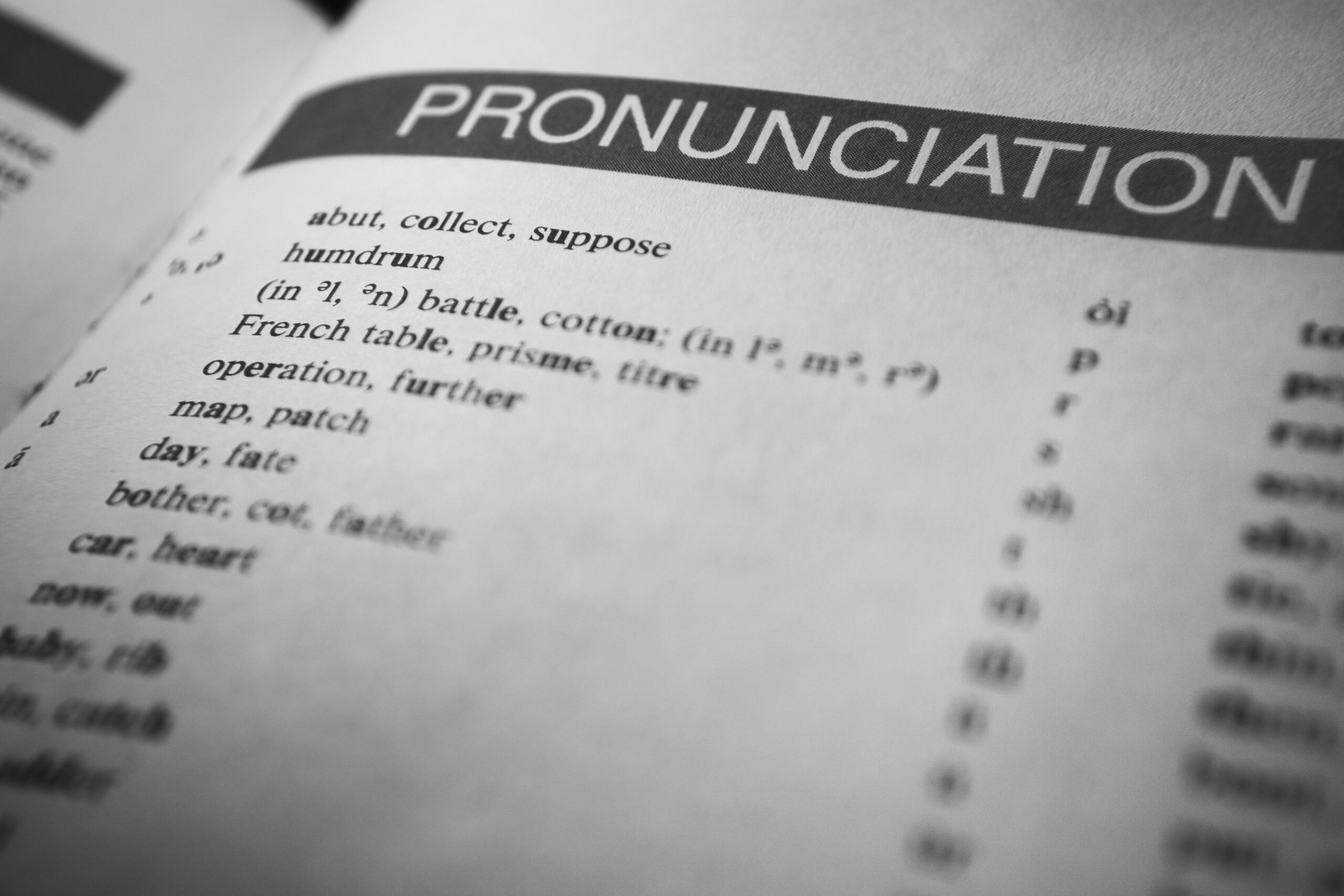
How to improve your pronunciation in English
Have you ever thought about how to improve your pronunciation in English? It’s not something that’s necessary but if you would like to sound a bit clearer then these tips should help.
Learn pronunciation symbols
Do you know that the English language has 26 letters but 40 different sounds?
To show pronunciation we use special symbols. For example the word rough is /rʌf/. This helps us to see that the ou is a sound similar to the u in ‘cup’. The gh is also similar to the f in ‘fish’.
It’s definitely worth learning these symbols. There’s a very useful guide through the Cambridge Dictionary. It takes a little work but it’s not too hard, in fact a number of them are obvious. You can probably guess what these symbols represent: /s/ and /p/.
Most dictionaries use these symbols and the British Council have a very useful app called Sounds Right which can really help.
Research tongue and mouth positioning
Knowing where to put your mouth and tongue is very important when learning how to say English sounds correctly. You need to hold your tongue and mouth in a certain way which may not be familiar to you.
There are some very useful videos on YouTube that can help you through the process. The video ‘How to learn pronunciation through movement.‘ can be a good starting point. Practice what you are doing in the mirror, looking at your movements while watching the video. This way you can see whether you are doing it right.
The more you do it, the more likely you are to do it correctly and so make your English pronunciation better.
Listen and write
Focusing on your listening skills can be key to improving your pronunciation. Choose a film, show, song or audio file and write down the words that you hear. Replay it until you have written them all down and slow down the speaking speed if you need to.
Afterwards compare your version with the lyrics, subtitles or transcript. Was it exactly right? Note down any differences that you found. This can really help you to focus on specific pronunciation features.
At the end, say the words back to yourself, copying the sounds that you heard. Repeat this until you can pronounce the words comfortably and smoothly.
If you find listening quite challenging then take a look at our blog post on improving your listening skills.
Listen to English language podcasts
Listening to native speakers is a great way to pick up their speech patterns. Podcasts are a really nice way of getting familiar with English the way it’s really spoken.
Often episodes are recorded in studies and bedrooms so they are done in a very natural way. If you are able to listen on YouTube then you can slow it down so you can get a better understanding. This is a good way to understand accents and really focus on the individual sounds.
We also have a podcast called English with Monty so have a listen to our podcast episode on this subject.
Record yourself
Prepare a few sentences and record yourself saying them on your phone. Listen to the recording and see how you sound. Was it too slow or fast or were there any sounds that were unclear?
We all hate listening to our own voices but after a while you will get used to it. If you can get past this then it’s a really good way of identifying things and improving your pronunciation.
Spend time talking to native speakers
Regularly practising with native speakers is one of the best ways you can improve. If you don’t have much chance to do this then you can find conversation groups or language exchanges online. When visiting London you can come to our conversation group. It’s a great way to meet new people and practise in a relaxed environment.
Focus on confusing sounds
It’s always good to focus on confusing sounds that are commonly pronounced incorrectly. Here are a few examples:
- Consonant clusters, e.g. black /bl/ and desk /sk/ with two consonants or tasks /sks/, sixty /kst/ and string /str/ with three consonants.
- Long and short vowels, e.g. I saw a sheep in a field (long /i:/ sound) vs I boarded a ship at the port (short /ɪ/ sound)
- /l/ and /r/, e.g. Can you collect the file? vs Can you correct the file?
When you practise your pronunciation, make a note of anything you might find confusing like some of the words above and then practise pronouncing them clearly.
How to improve your pronunciation in English in an English-speaking country
The best way to improve your pronunciation in English is to spend some time in an English-speaking country. Although it can be a bit difficult to know where to start we would definitely recommend language exchanges and conversation groups. These are aimed at English learners and can be a very good place to start and make some connections with some people who would like to do the same thing.
If you’re feeling a bit more adventurous then attending a toastmaster’s meeting can really help. They focus on public speaking, help you develop your communication and leadership skills. Another alternative is to spend time doing a hobby you like in a group setting. Many students I have found really like going out in hiking groups. They are a good opportunity to chat and meet new people while exploring nature and getting to know some new places.
Whatever you decide to do just make sure you enjoy it, even small things can really help over time. Go out and try some of our ideas and good luck on your journey to improved pronunciation!
